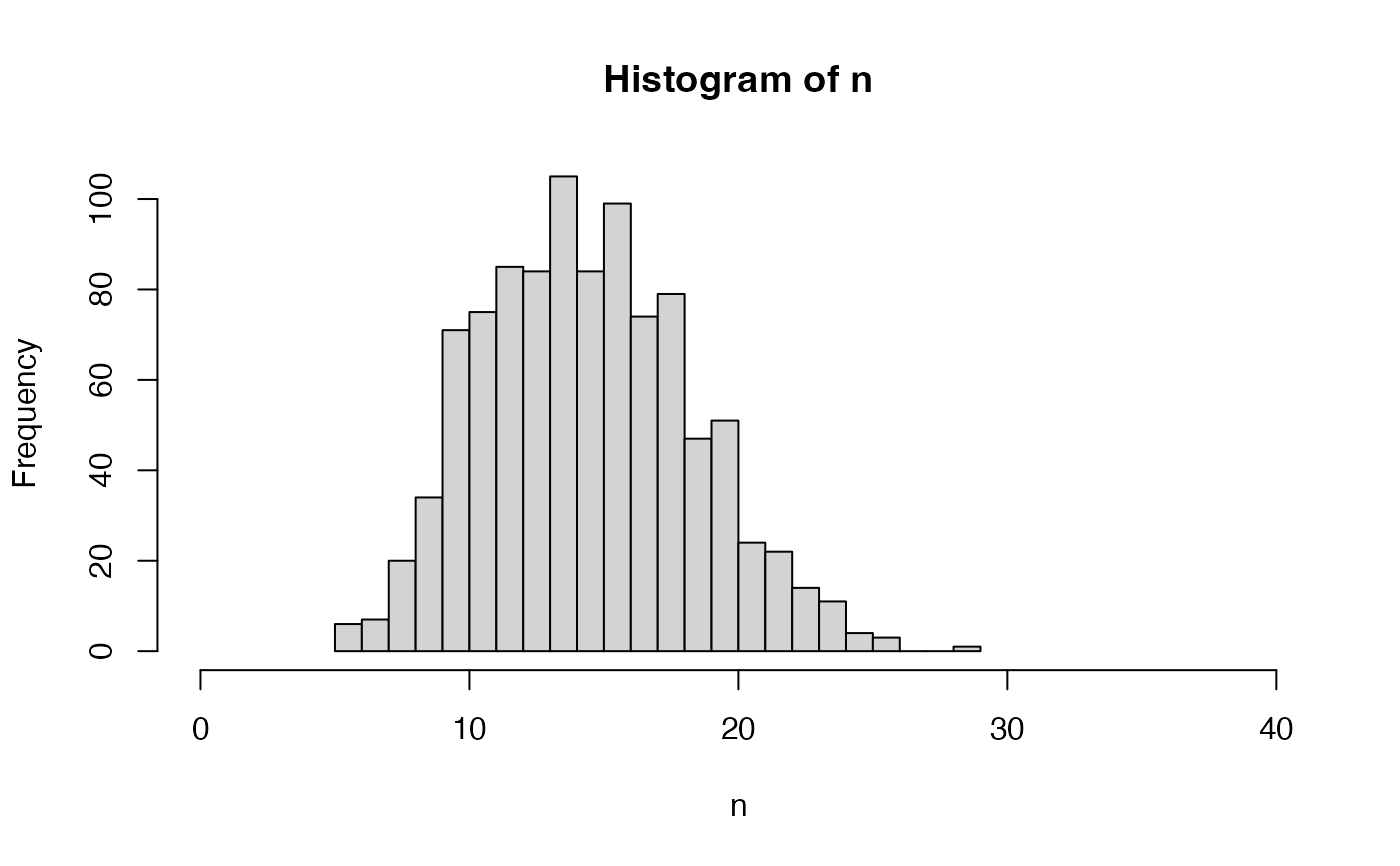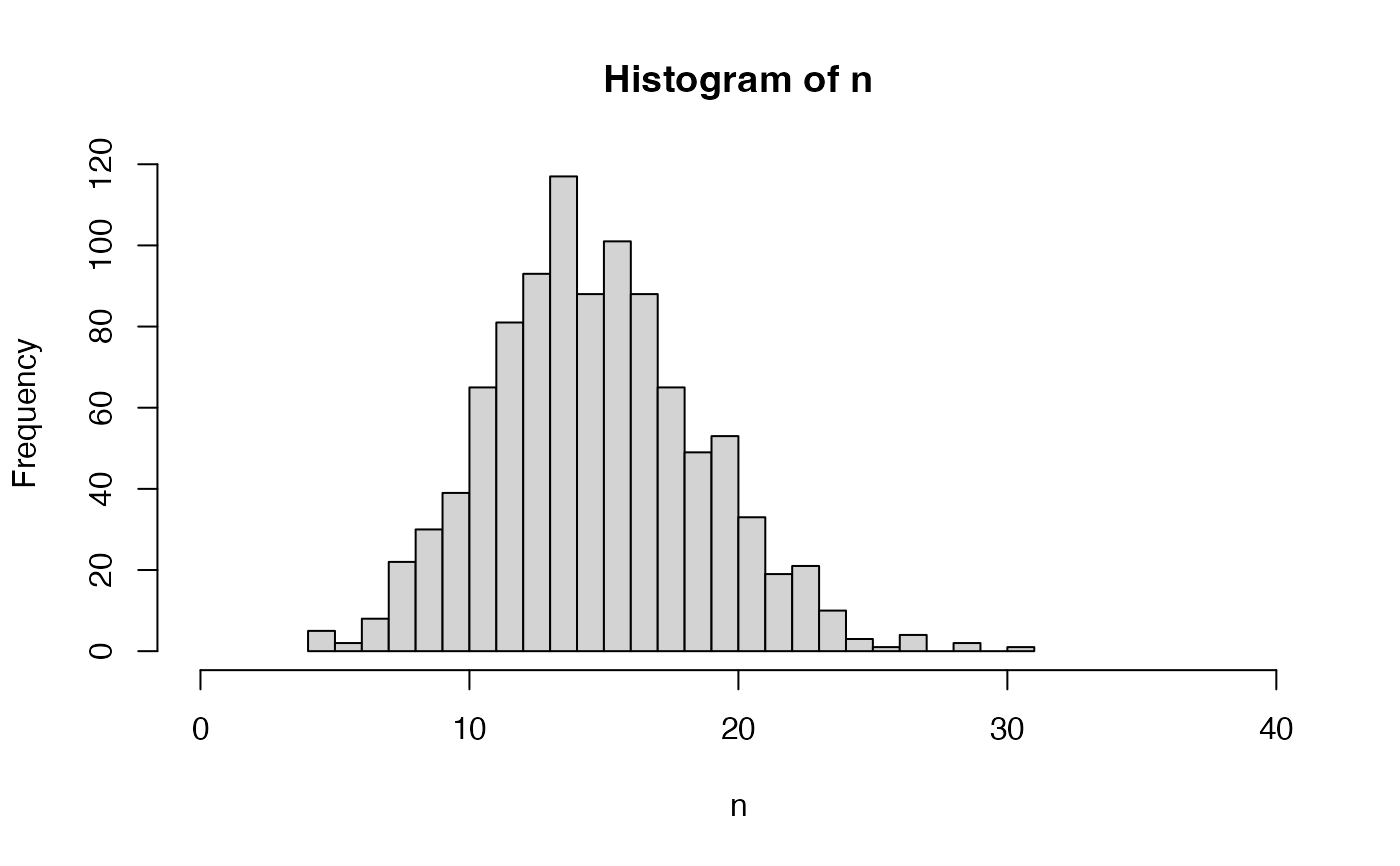Sample a number of fathers - use when nFathers = NULL
(see SimParamBee$nFathers).
This is just an example. You can provide your own functions that satisfy your needs!
nFathersPoisson(n = 1, average = 15)
nFathersTruncPoisson(n = 1, average = 15, lowerLimit = 0)Arguments
- n
integer, number of samples
- average
numeric, average number of fathers
- lowerLimit
numeric, returned numbers will be above this value
Value
numeric, number of fathers
Details
nFathersPoisson samples from a Poisson distribution, which
can return a value 0 (that would mean a failed queen mating).
nFathersTruncPoisson samples from a truncated Poisson distribution
(truncated at zero) to avoid failed matings.
Functions
nFathersTruncPoisson(): Sample a non-zero number of fathers
See also
SimParamBee field nFathers
Examples
nFathersPoisson()
#> [1] 15
nFathersPoisson()
#> [1] 13
n <- nFathersPoisson(n = 1000)
hist(n, breaks = seq(from = min(n), to = max(n)), xlim = c(0, 40))
 table(n)
#> n
#> 5 6 7 8 9 10 11 12 13 14 15 16 17 18 19 20 21 22 23 24
#> 2 4 7 20 34 71 75 85 84 105 84 99 74 79 47 51 24 22 14 11
#> 25 26 29
#> 4 3 1
nFathersTruncPoisson()
#> [1] 12
nFathersTruncPoisson()
#> [1] 20
n <- nFathersTruncPoisson(n = 1000)
hist(n, breaks = seq(from = min(n), to = max(n)), xlim = c(0, 40))
table(n)
#> n
#> 5 6 7 8 9 10 11 12 13 14 15 16 17 18 19 20 21 22 23 24
#> 2 4 7 20 34 71 75 85 84 105 84 99 74 79 47 51 24 22 14 11
#> 25 26 29
#> 4 3 1
nFathersTruncPoisson()
#> [1] 12
nFathersTruncPoisson()
#> [1] 20
n <- nFathersTruncPoisson(n = 1000)
hist(n, breaks = seq(from = min(n), to = max(n)), xlim = c(0, 40))
 table(n)
#> n
#> 4 5 6 7 8 9 10 11 12 13 14 15 16 17 18 19 20 21 22 23
#> 3 2 2 8 22 30 39 65 81 93 117 88 101 88 65 49 53 33 19 21
#> 24 25 26 27 29 31
#> 10 3 1 4 2 1
table(n)
#> n
#> 4 5 6 7 8 9 10 11 12 13 14 15 16 17 18 19 20 21 22 23
#> 3 2 2 8 22 30 39 65 81 93 117 88 101 88 65 49 53 33 19 21
#> 24 25 26 27 29 31
#> 10 3 1 4 2 1